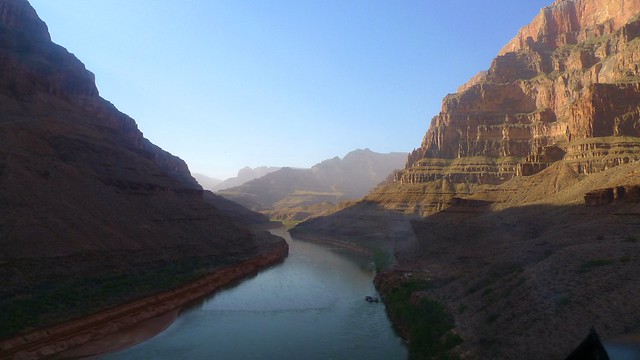
I write a column for Baptist News Global every 4 weeks. On April 14, 2015, they published my article entitled, "What 'religious freedom' used to mean." In my mind, there was nothing ground-shattering about it. I'm one of many Baptists who know our heritage when it comes to religious freedom and the separation of church and state. My article compared the original context of the fight for religious freedom to the current day climate of Christians using "religious freedom" as a way of securing extra trump cards.
A few days after the column ran, I was scrolling through Facebook and happened to see that Americans United for the Separation of Church and State had posted my column to their Facebook page. It must have struck a chord.
Although it's never a good idea to scroll through internet comments, the ones under my article were actually largely positive and non-trollish. What was most striking to me was the number of people who expressed disbelief that a Baptist minister would write such an article. A few examples:
I knew Baptists had a PR problem, but I suppose this was one of my few opportunities to see it all in one place. The above comments are only a small sample.
It is unfortunate that so many people don't know about the historic Baptist commitment to the separation of church and state (including, of course, many Baptists). One of my sources for the article was William M. Pinson, Jr.'s book Baptists and Religious Liberty. There are many such sources on this subject, but Pinson's book is one of the more digestible ones.
I suppose if I were a Southern Baptist I would represent the tiny minority that people suppose, but especially within my denomination, American Baptist Churches - USA, there is a widespread commitment to what Walter B. Shurden calls the "four fragile freedoms": soul freedom, church freedom, Bible freedom, and religious freedom.
But it has also been a reminder that there are so many people out there who have only encountered the type of Christian who lives with great fear and resentment instead of trying to exemplify the grace-filled life that Jesus lived. The current "religious freedom" debate has revealed how many Christians walk through life blinded by a false narrative of persecution and who show no interest in how to serve and love their neighbor. Jesus did not command us to love our neighbor only when things are as we want them to be. In fact, he preached radical, impossible-seeming commands like "love your enemies" and told his followers to go the extra mile when forced by Roman soldiers to carry their equipment.
Hyper-individualism, in which people use all means necessary to put up protective fences, has sadly infiltrated a faith that is supposed to be about joining "prostitutes and tax collectors" at the banquet table.
Gandhi's famous quote looms large: "I like your Christ. I do not like your Christians. Your Christians are so unlike your Christ."


